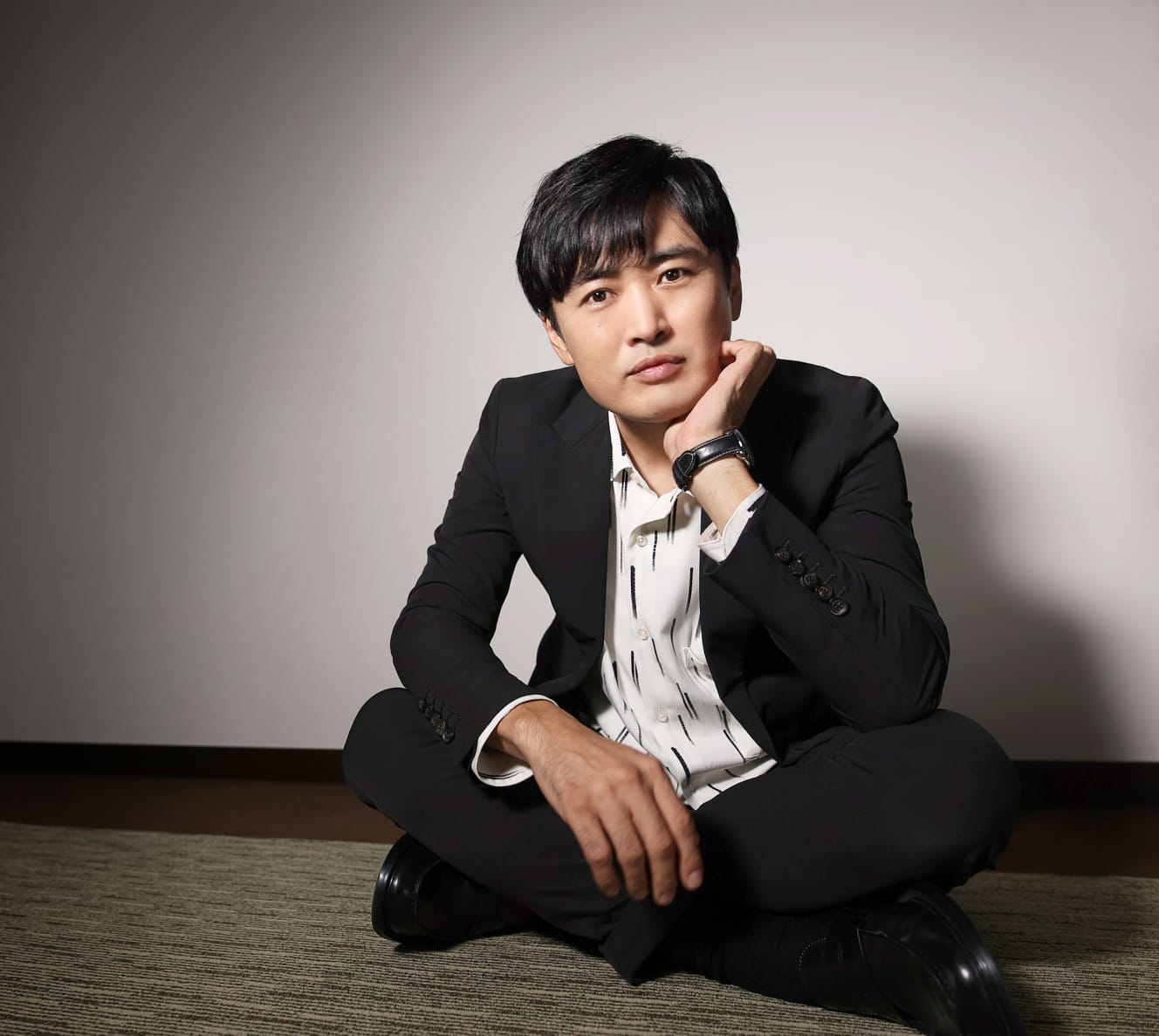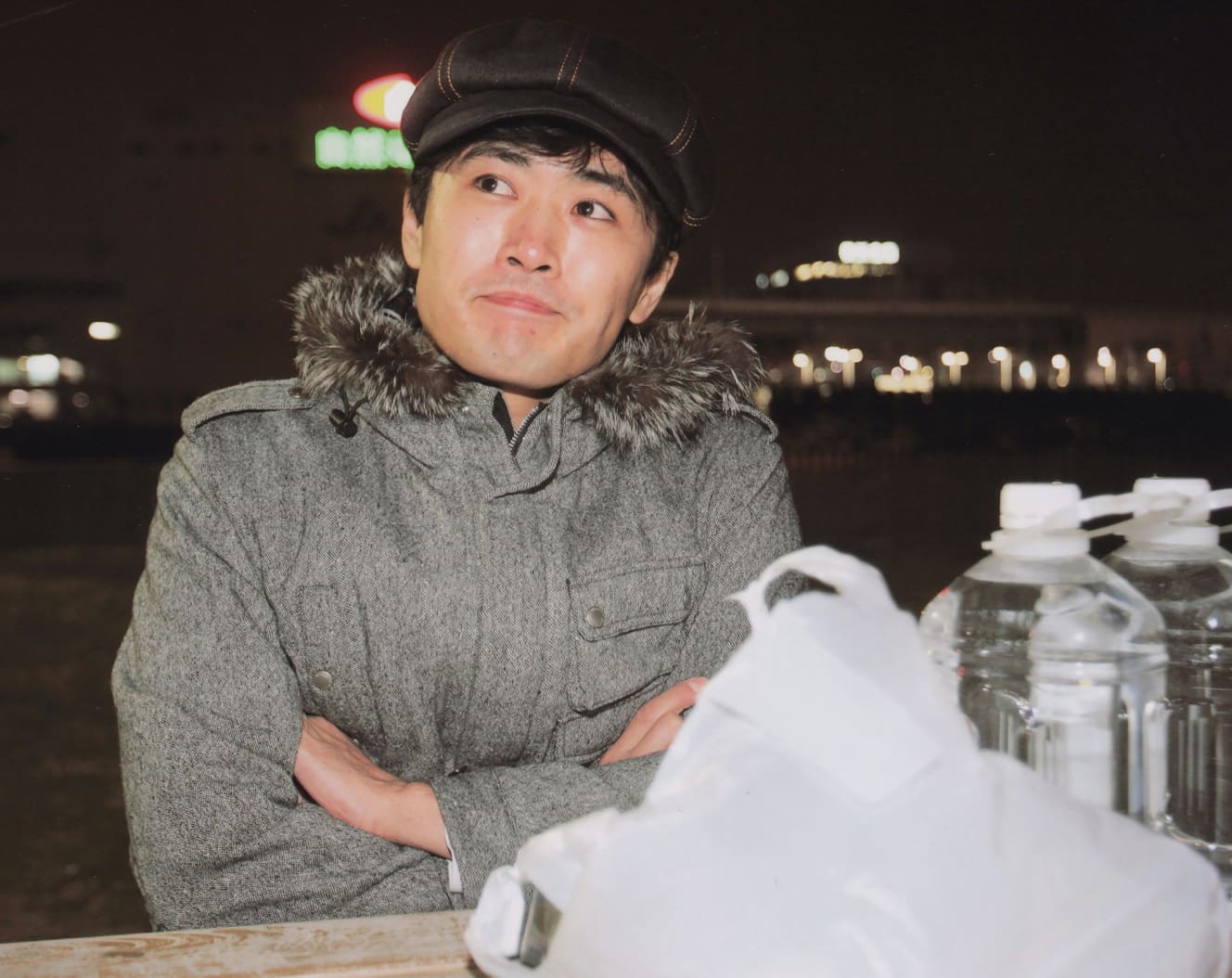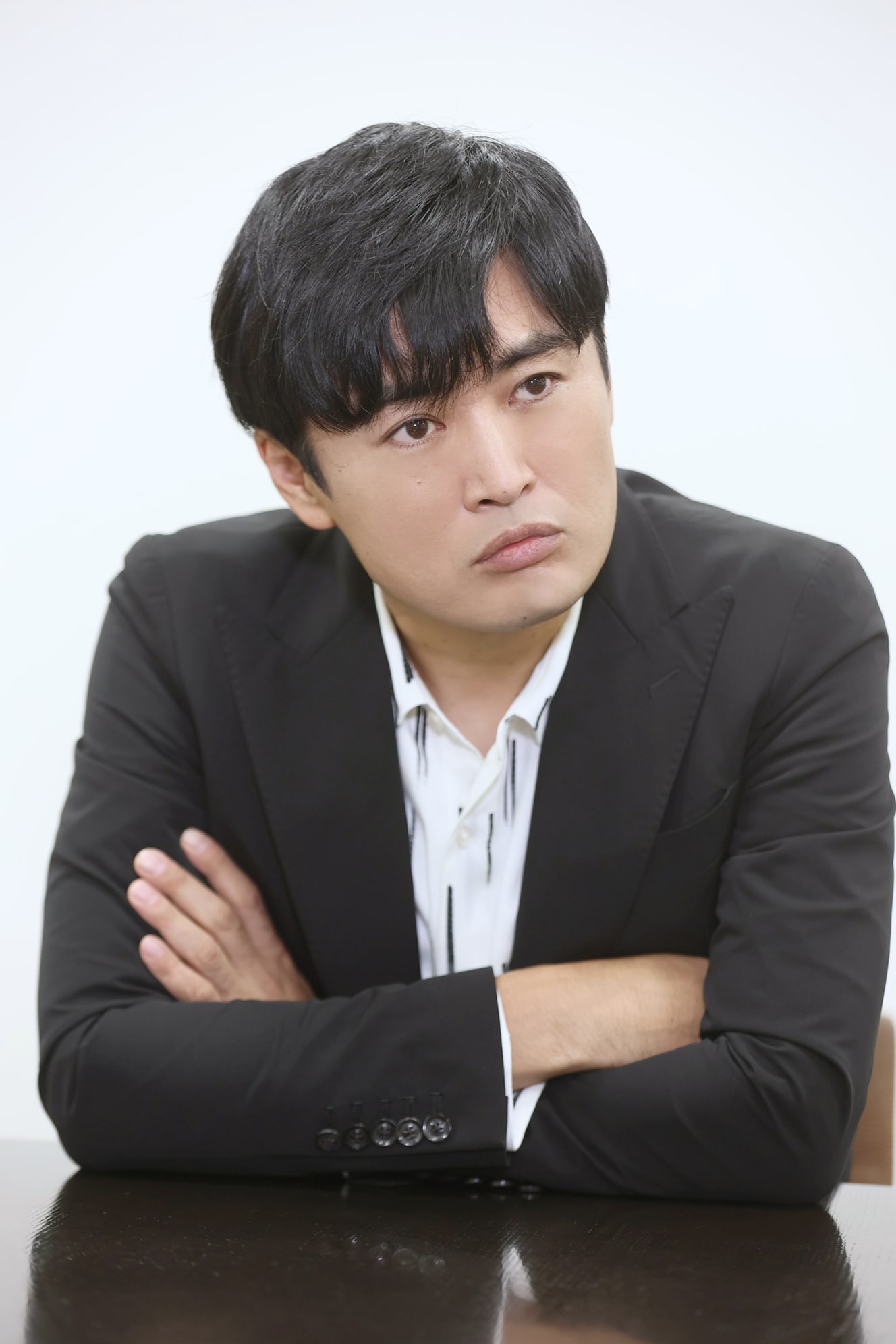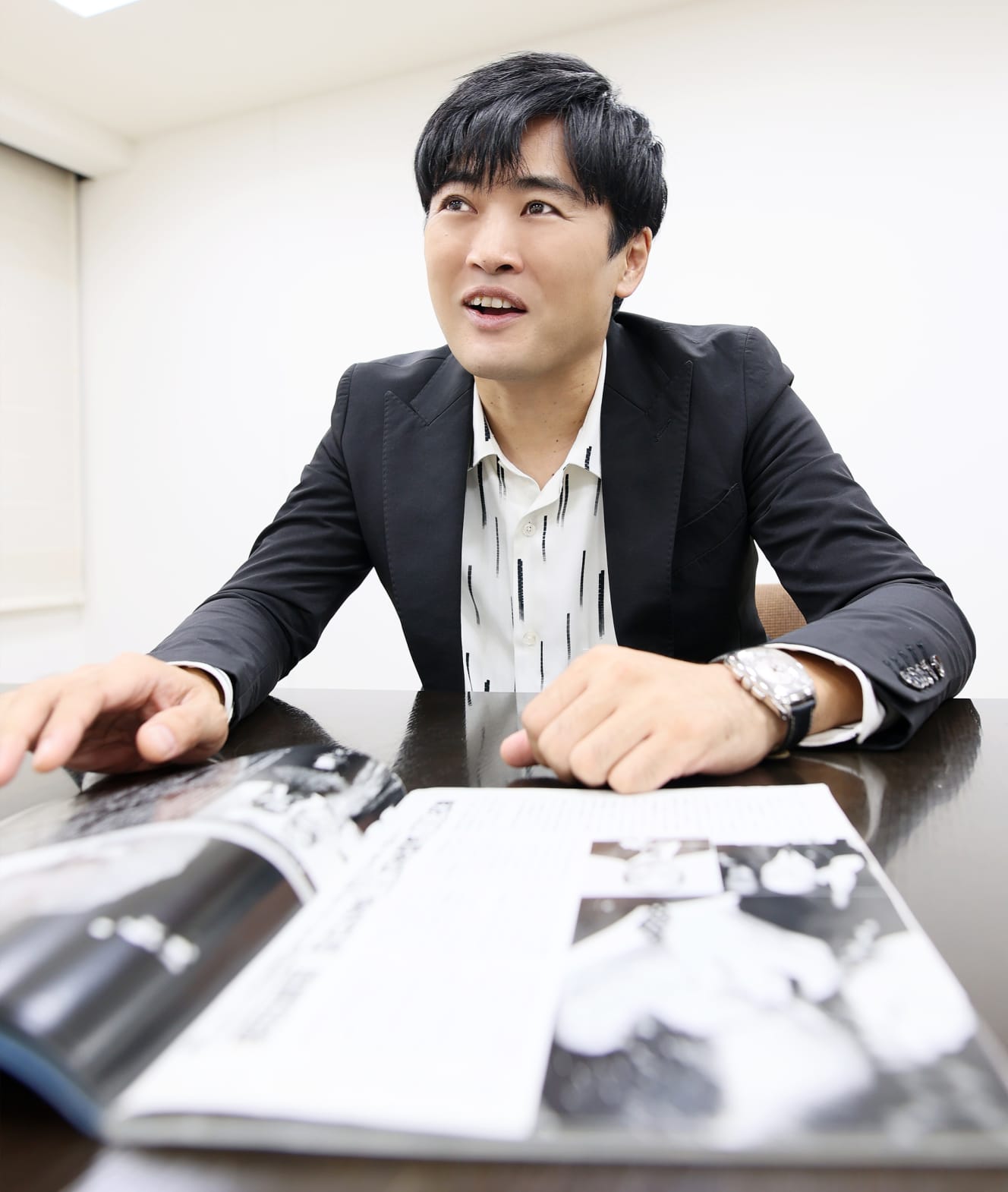Gekidan Hitori’s “What I Want to Accomplish Before I Die

Wow. I miss it so much~. I still have the coat I was wearing at that time. These days, I am rarely photographed. I’m still in the spotlight when I’m in the spotlight.
Gekidan Hitori (45), who celebrated the 30th anniversary of his debut this year, stared intently at the 2008 issue of “FRIDAY” that featured an article on his love affair with his wife, Osawa Akane (37). When we asked him about past scoops, he shyly told us the inside story of those days (all statements in parentheses are by Gekidan Hitori).
I heard that Mr. Taku Egawa (67) once wrote a terrible thing about me when I was cold to him in a direct interview. I had heard that, so I responded very politely. We talked for about an hour in a nearby park, I think. At the end, the reporter asked me if I had any more questions, and I replied, “Did anything interesting happen recently? I was asked, “Did anything interesting happen recently? I thought to myself, ‘If there’s nothing to ask, just go home.

Since his debut in 1993, Gekidan Hitori has been energetically engaged in creative work as a writer, director, and screenwriter in addition to his activities as a comedian and TV personality. Set in Asakusa during the Meiji and Taisho eras, the novel depicts people living tough lives despite being tossed about by harsh fates.
Following the explosive success of “Asakusa Kid,” which was released on Netflix last year, Gekidan Hitori has once again written a work set in Asakusa. As he marks the 30th anniversary of his artistic career, we asked him what he had in mind for his latest novel.
–It has been 12 years since you published a novel, but you had the idea for this one for a long time.
About 12 years ago, when I was on location for a movie called “Bolt from the Blue Sky,” I saw a Taisho period incense tablet in the lobby of Kibatei in Asakusa, and when I saw the term “Asakusa Opera,” I thought it sounded interesting, that it was a very nice term, and I thought I would look into it. But I stopped at that point.
After that, I thought about writing about it, but then I thought, “No, I want to do “Asakusa Kid” first, not “Asakusa Opera. I wrote the script for “Asakusa Kid,” brought it to various places, and it took seven years to get it shot. After cranking up the film and during the editing process, I remembered that I was going to write about the Asakusa Opera. So I read references and did a lot of research, and decided to start writing again.
–How exactly did you come up with the characters and the story from a single word?
While looking at various materials, I came up with the image of a girl peeking out from an attic room above the stage of a theater where an Asakusa opera is performed. That was the breakthrough. From there, I started thinking about why the girl was there, and this is what I came up with.
–Compared to your past works, the style and writing style seem different.
I have always written in the first person in my previous works, and I prefer the first person style. But this time, I started writing in the third person because I felt that the structure of the story would not work in the first person. But in the beginning, the writing was stiff and boring.
In the first person, once you become the character, everything is like dialogue, so it’s easy to write. But the moment I started writing in the third person, I found myself trying to make it fit into something like a novel, and I felt very uncomfortable.
Then I thought that I could write more freely. I forgot about the idea that this was a third-person novel and that it had to be this way. I thought, “I am simply using words to tell people a story, and it doesn’t matter if it is in the third person or in a novel; I should write freely. After rewriting it, I felt that I was able to write in the third person in a way that was uniquely me.
–I was impressed by the unique rhythm of the story, as if someone was telling a story, like rakugo or kodan, and it was easy to read.
It was easy to read. I am very concerned about readability, after all. When I am reading a book, I am usually very annoyed if I get stuck. I was just getting into the swing of things. That’s why I always read my writing out loud to check if there are any stumbling blocks.

–Hitori-san, is the process of writing a novel enjoyable for you?
Well, I don’t feel that it is fun. I think it is like mountain climbing. I don’t think it is so much fun when I am climbing a mountain, it is rather painful. But you want to climb. I think it’s like that.
So, it is tedious until you start moving, but once you start, you start to feel a sense of mission to go to the top. It is not fun, and the pain is stronger, but it is a “good pain.
–I think “Asakusa Runtatta” was a new experiment for Hitori as well.
I think the fact that I gathered materials and wrote the film from scratch gave me a lot of confidence. Until now, I had only worked within the scope of what I had seen and heard, whether it was novels or films. For this work, I naturally knew nothing about the period, so I did a lot of research and came to be able to picture the world in my mind and create the characters, which gave me a lot of confidence. I felt that if I could write this, I could do anything. For example, I don’t know anything about mountain climbers or jazz pianists, but if I read, researched, and interviewed them, I could probably write a book or two.
It is not that I have never done interviews before, but “doing all the research” was a major discovery for me this time. If I had not done this, I don’t think I would have been able to do the drama “Mumonkan” that I was allowed to do last time. (“Mumonkan”: Drama based on a true story that was broadcast during NTV’s “24-Hour TV” in 2022. It was directed and written by Gekidan Hitori.)
I originally did not know about the existence of MUTO-KAN. But after listening to stories and reading various books, I was able to shoot a whole drama. I concentrated on doing that in a fairly short period of time. It was probably because I was writing “Asakusa Runtatta” that I thought I would be able to do that. So from now on, I thought that if I have a desire to try something I don’t know, I should do it without fear.
–Looking back over the past 30 years, what is your most memorable job?
It’s tough to say just one job, but if I had to pick one show, it would have to be “Godotan” (TV Tokyo). I can’t imagine what I would have done if I hadn’t met that show. I thought I had tried many things as a comedian, but “Godotan” opened up possibilities for me that I never knew existed. It’s the same with “Sanshiro” and “Haraiichi’s” Yuuki Iwai (36). It’s a show where talents that even they are unaware of can blossom. I think that is what is so great about the show.
The staff of “Godtan” is hungry for interesting things. (It is not only the production staff like (director/producer) Mr. Nobuyuki Sakuma (46), but also the camera crew and other technical staff. So no matter how cold the scene gets, everyone waits for me. It is a space where you can swing the bat as hard as you want, even if you strike out. However, there have been many times when I have actually struck out (laughs).
–Finally, can you tell us about your goals or what you want to do in the future?
I just want to be satisfied with my work. The world’s evaluation may be important, but if I am not satisfied with my own work, I will never be fully satisfied with it. No matter how much praise I receive, I still want to be satisfied and convinced by myself. I want to do work that satisfies me to the point where I can say, “This is enough for me, I have no regrets. It doesn’t matter if it is a variety of work or a piece of artwork. I just want to see how many things I can do before I die that I can be satisfied with.
Until the day I am satisfied with myself. Gekidan Hitori continues to challenge himself in the world of creativity.

Interview and text by Larry Toda: Larry Toda Photographs: Takehiko Kohiyama and Shoichiro Tsuboi (past photo)